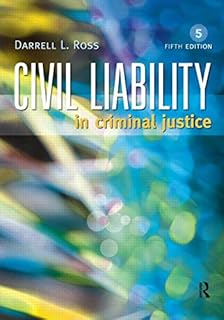 The very first tier of compensation for oil spill damage is sourced from the Protection and Indemnity insurer of the vessel (P&I Club) on behalf of the shipowner below the International Convention on Civil Liability for Oil Pollution Harm (Civil Liability Convention or CLC). The International Convention on the Establishment of an International Fund for Compensation for Oil Pollution Harm, 1992 (the 1992 Fund Convention). The limitation of liability may disappear exactly where it can be proved that the accident resulted from a private act or omission of the ship-owner, committed recklessly or with intent to cause damage, and with expertise that such damage would almost certainly occur. This is one more explanation for which the bareboat charterer, the manager and the operator (if a distinction among bareboat charterer and operator is conceivable in practice) would be compelled to insure their liability.
The very first tier of compensation for oil spill damage is sourced from the Protection and Indemnity insurer of the vessel (P&I Club) on behalf of the shipowner below the International Convention on Civil Liability for Oil Pollution Harm (Civil Liability Convention or CLC). The International Convention on the Establishment of an International Fund for Compensation for Oil Pollution Harm, 1992 (the 1992 Fund Convention). The limitation of liability may disappear exactly where it can be proved that the accident resulted from a private act or omission of the ship-owner, committed recklessly or with intent to cause damage, and with expertise that such damage would almost certainly occur. This is one more explanation for which the bareboat charterer, the manager and the operator (if a distinction among bareboat charterer and operator is conceivable in practice) would be compelled to insure their liability.
The 1992 Fund Convention established the International Oil Pollution Compensation Fund 1992 (1992 Fund) to give compensation for victims who are unable to obtain full compensation under the Civil Liability Convention. NB: Considering that the advent of the 1992 Protocol it is no longer doable for countries to ratify the 1969 Civil Liability Convention.
An examination of current international maritime practice shows that there are essential gaps in the regulation and implementation of responsibilities relating to pollution by vessels, specifically in situations of catastrophic accidents such as those of the oil tankers Erika” in 1999 and Prestige” in 2002. When an incident involving two or far more ships occurs and pollution harm benefits therefrom, the shipowners of all the ships concerned, unless exonerated beneath report three, shall be jointly and severally liable for all such harm which is not reasonably separable. The CLC was adopted in 1969 but has since been superseded by the 1992 Protocol (CLC 92).
The damage was wholly triggered by the negligence or other wrongful act of any Government or other authority responsible for the upkeep of lights or other navigational aids, in the workout of that function. The owner may be required to present the certificate on entering the waters of a state party to the CLC, to demonstrate that he has in place insurance coverage to cover claims for oil pollution up to a specific limit, determined by the tonnage of the ship.
Rights of compensation below this Convention shall be extinguished unless an action is brought thereunder within 3 years from the date when the harm occurred. Where much more than a single individual is liable in accordance with paragraph 1, their liability shall be joint and various. Thirdly, the liability is channelled” to the registered owner of the vessel, which becomes responsible ope legis for any pollution damage caused by the ship. This section is only applicable to ships flying the flags of a State celebration to the 1992 CLC (see Annex 1) or of States which are not parties to either 1969 or 1992 CLC, i.e. States which are not list in Annex 1 or Annex two.









